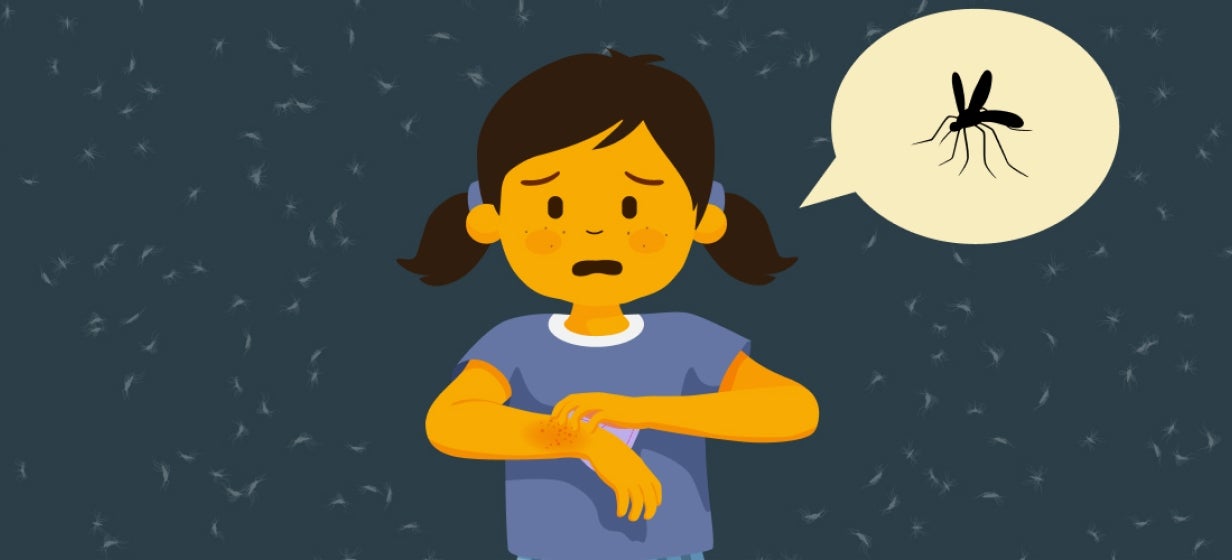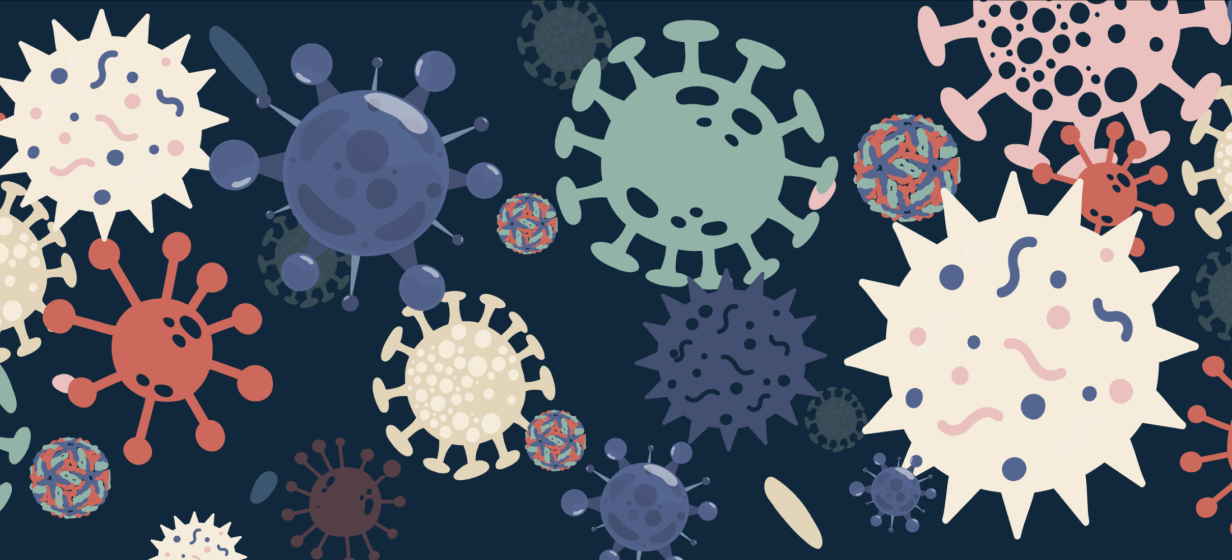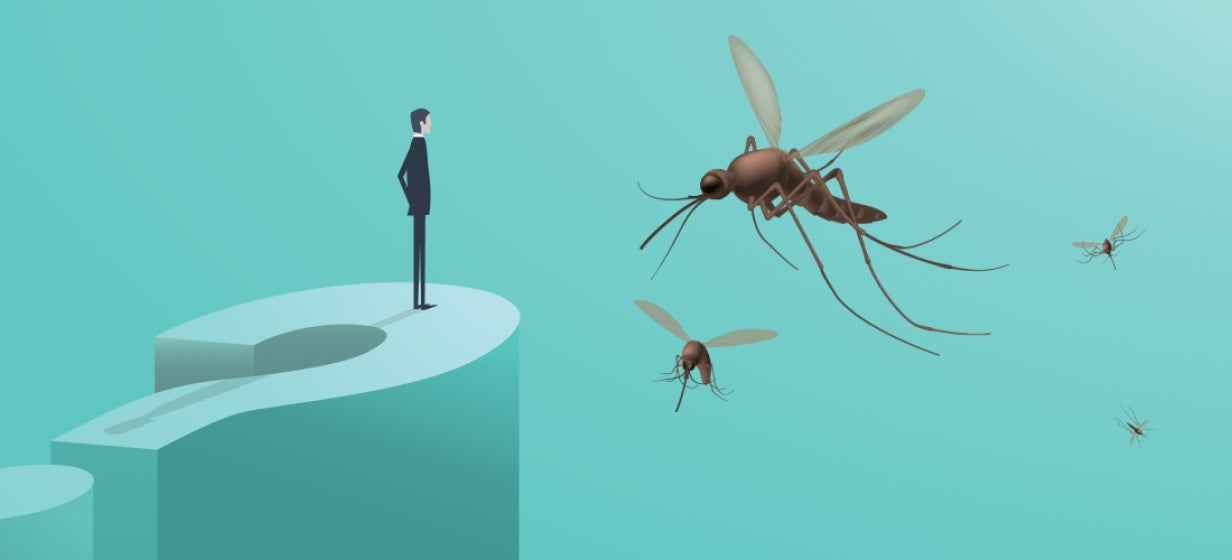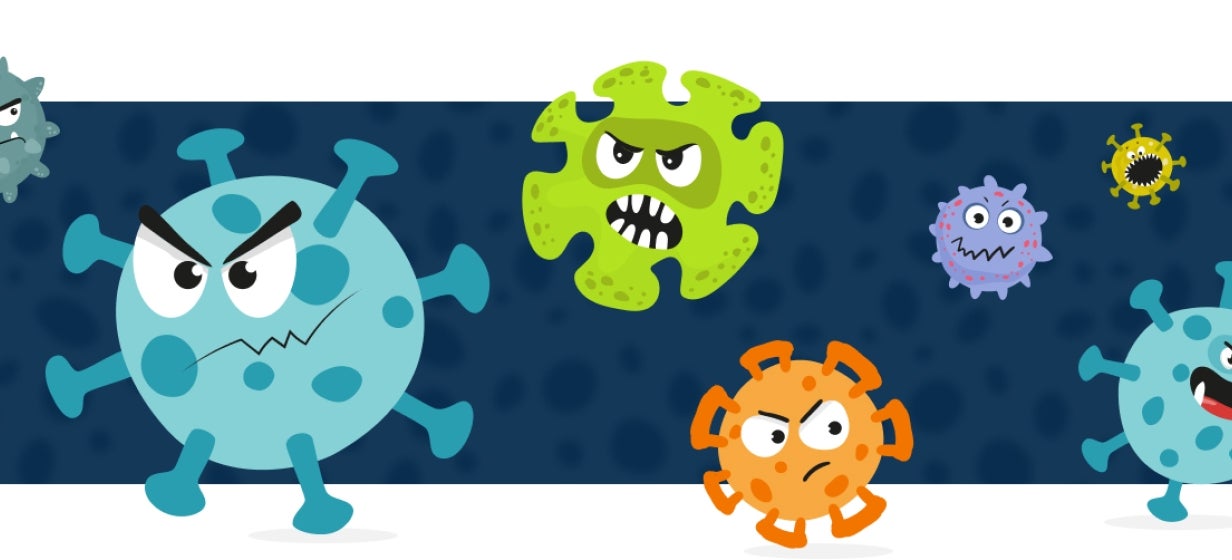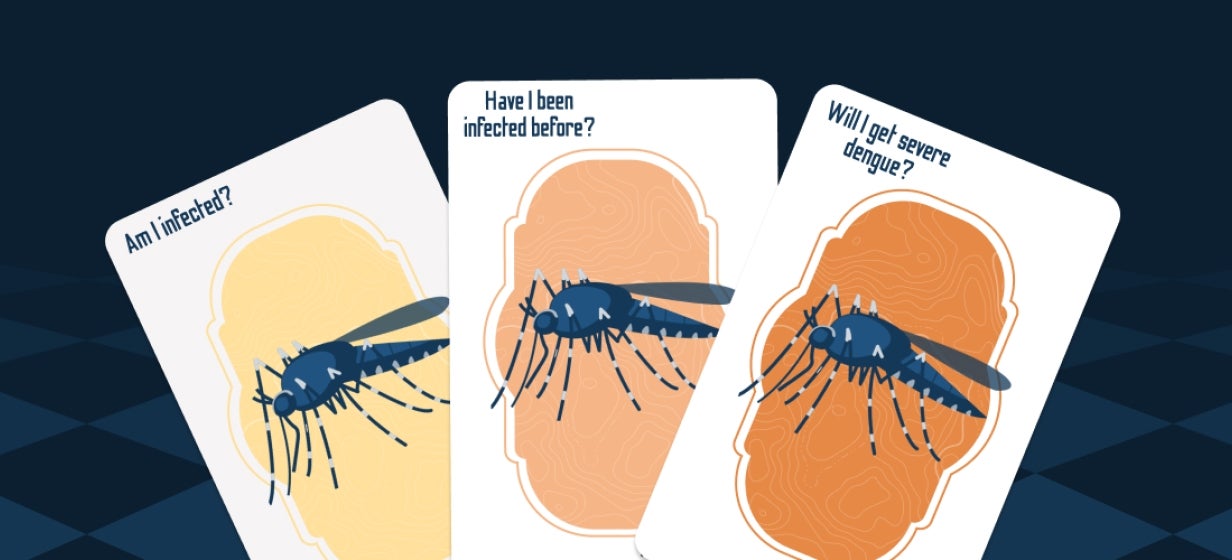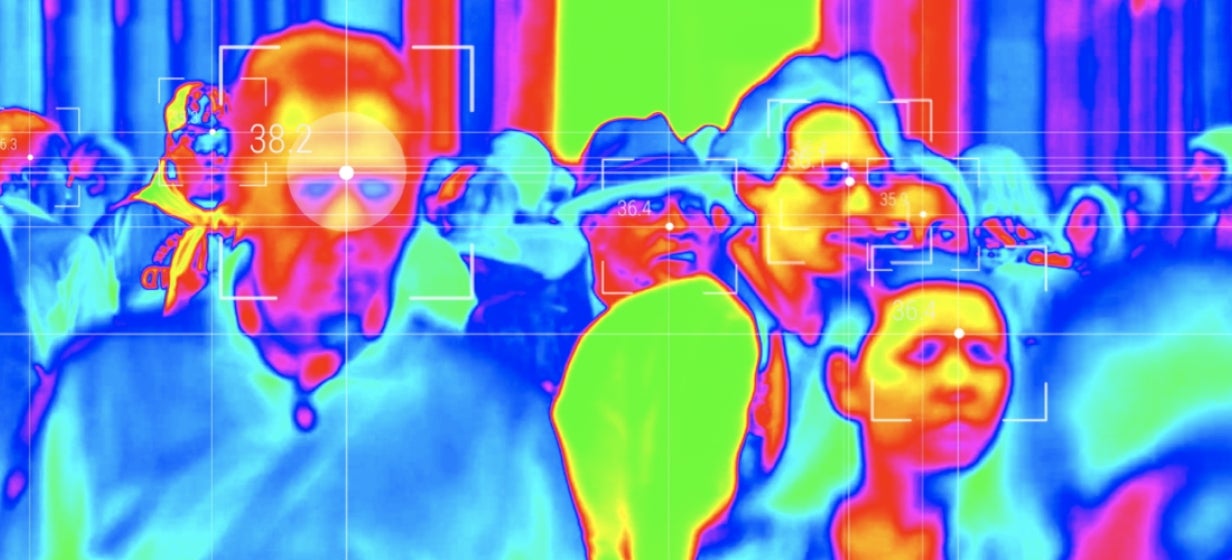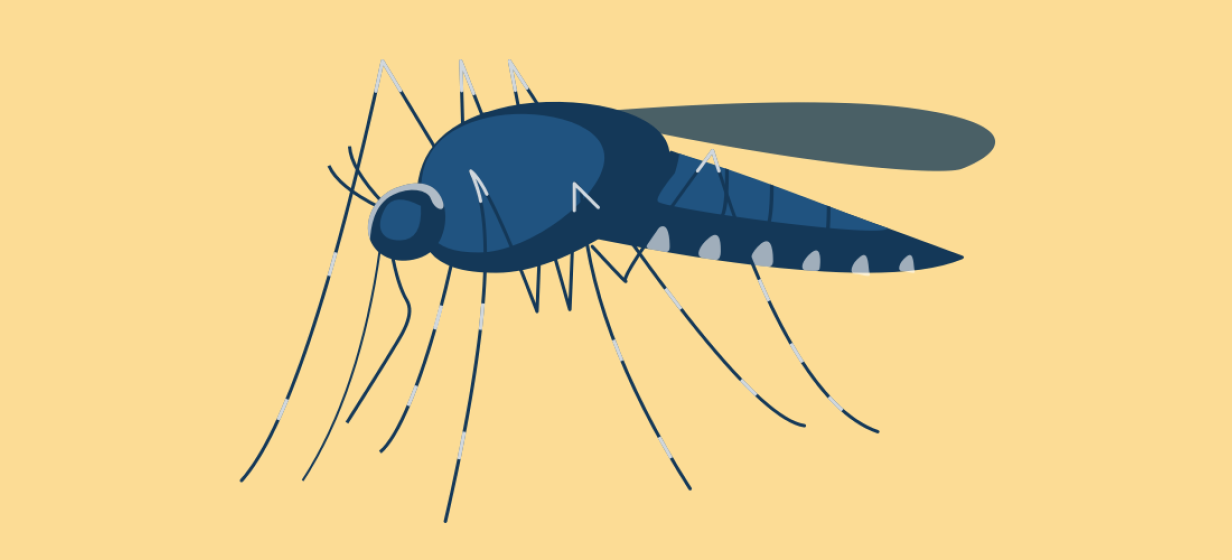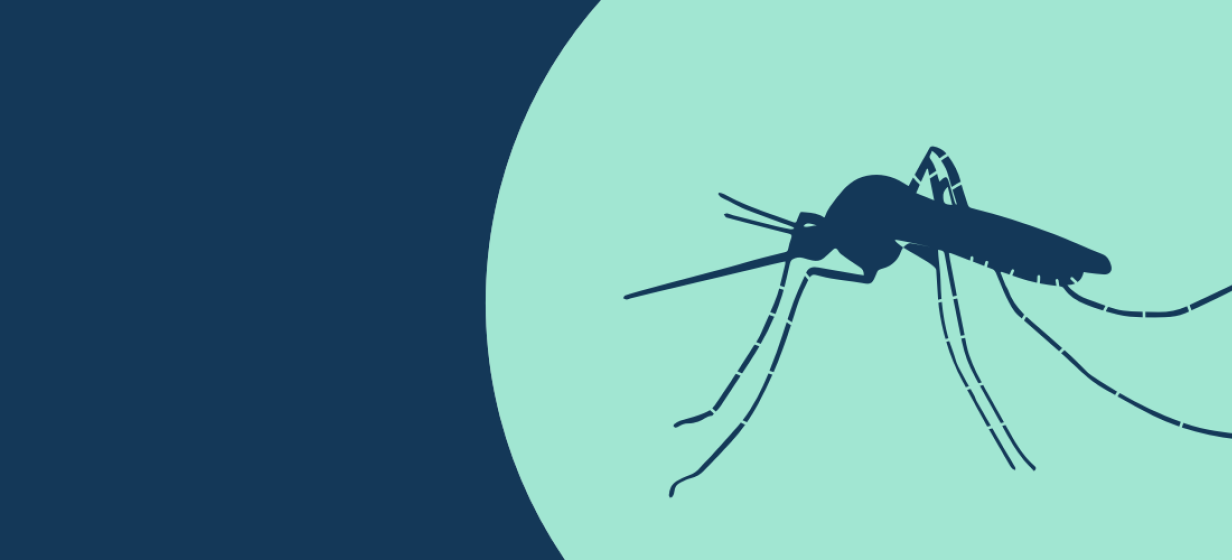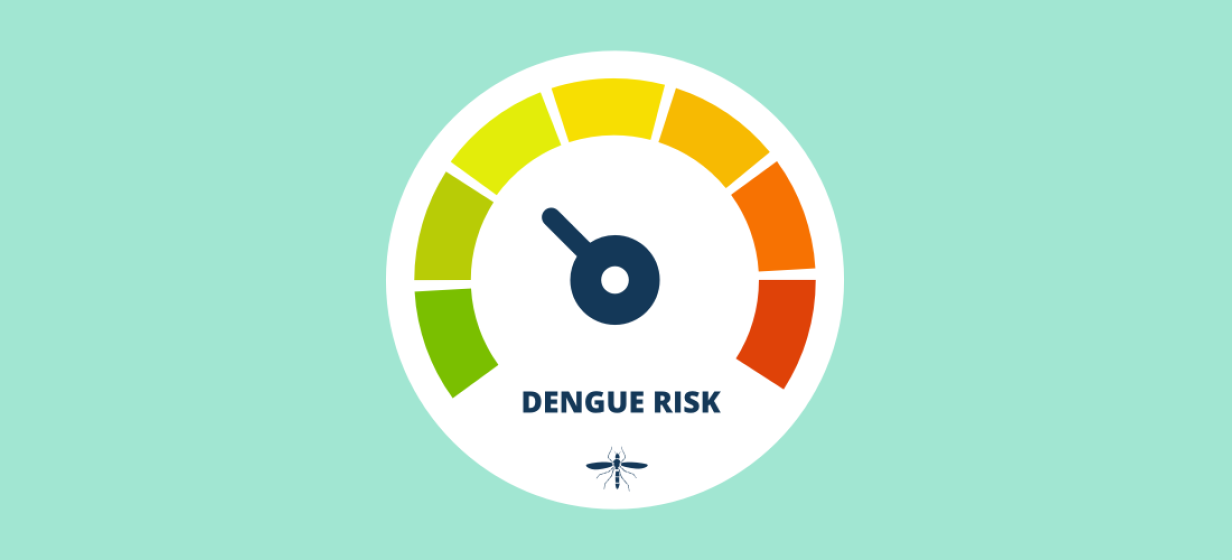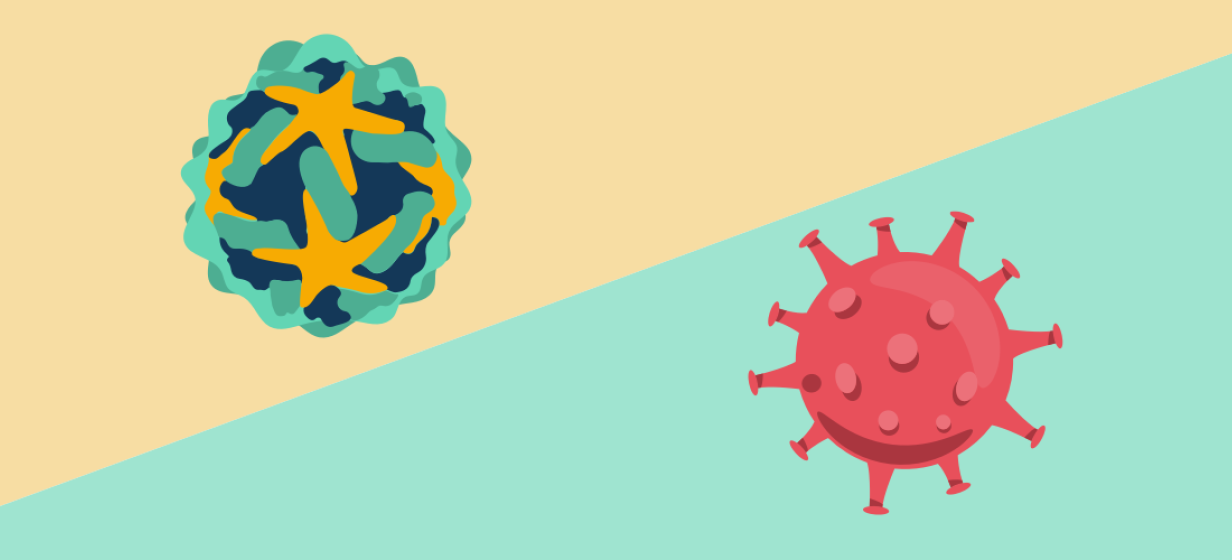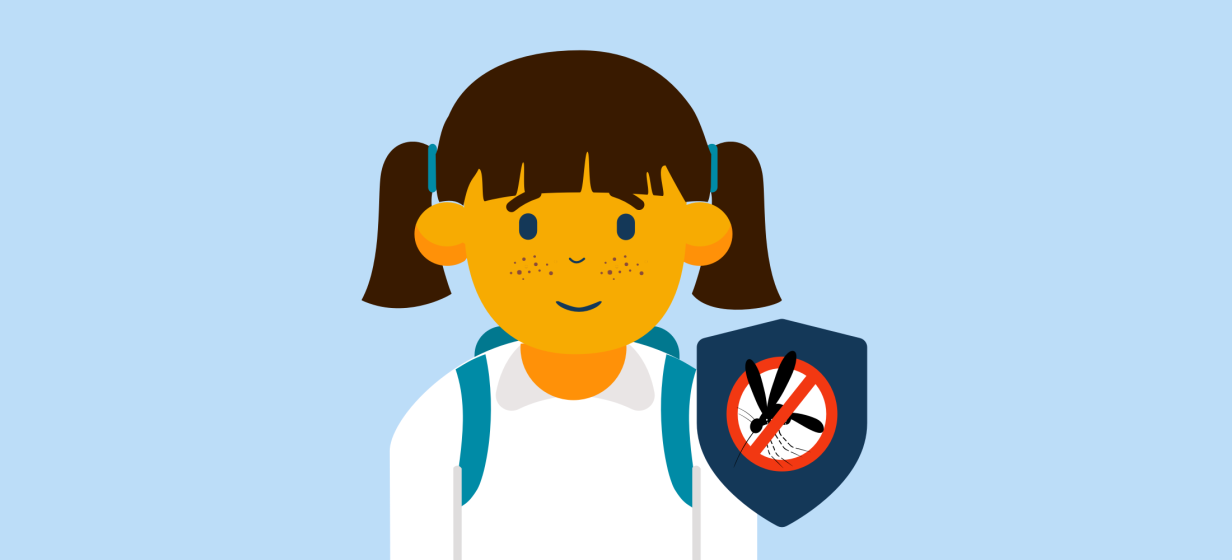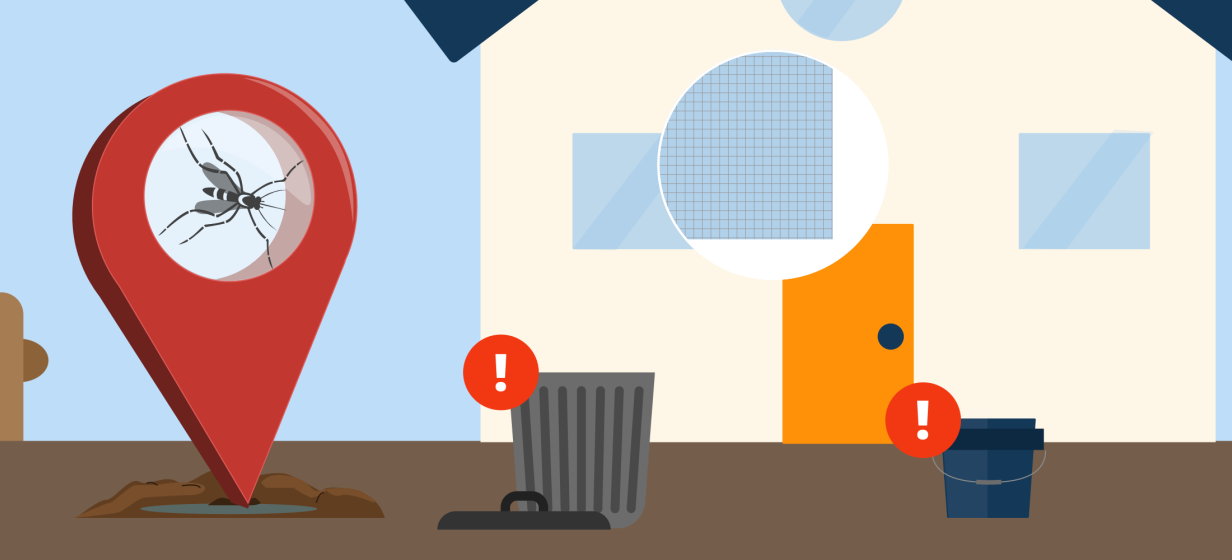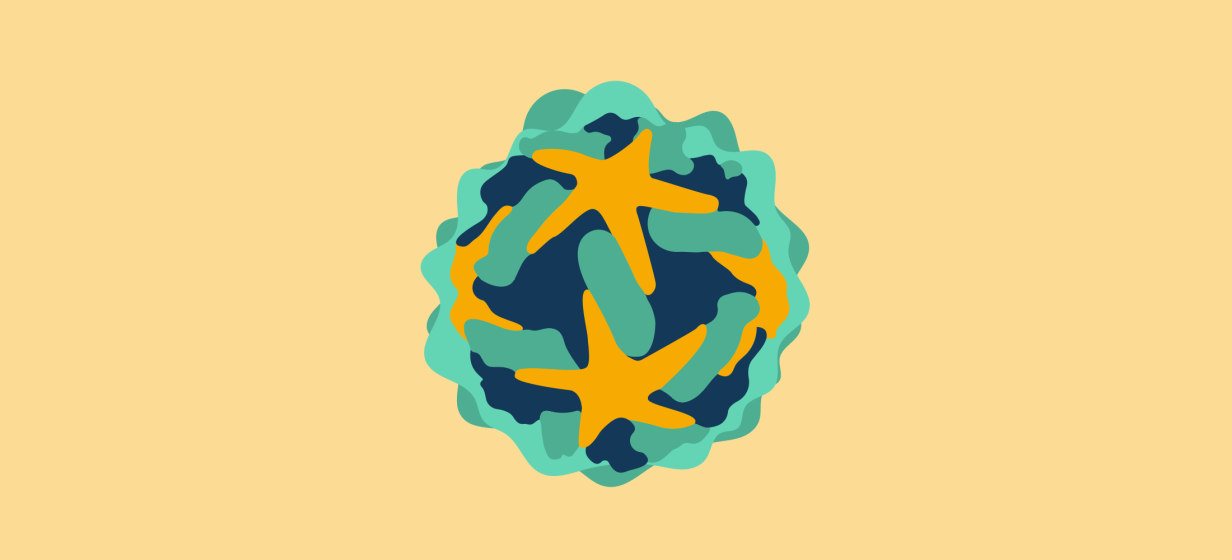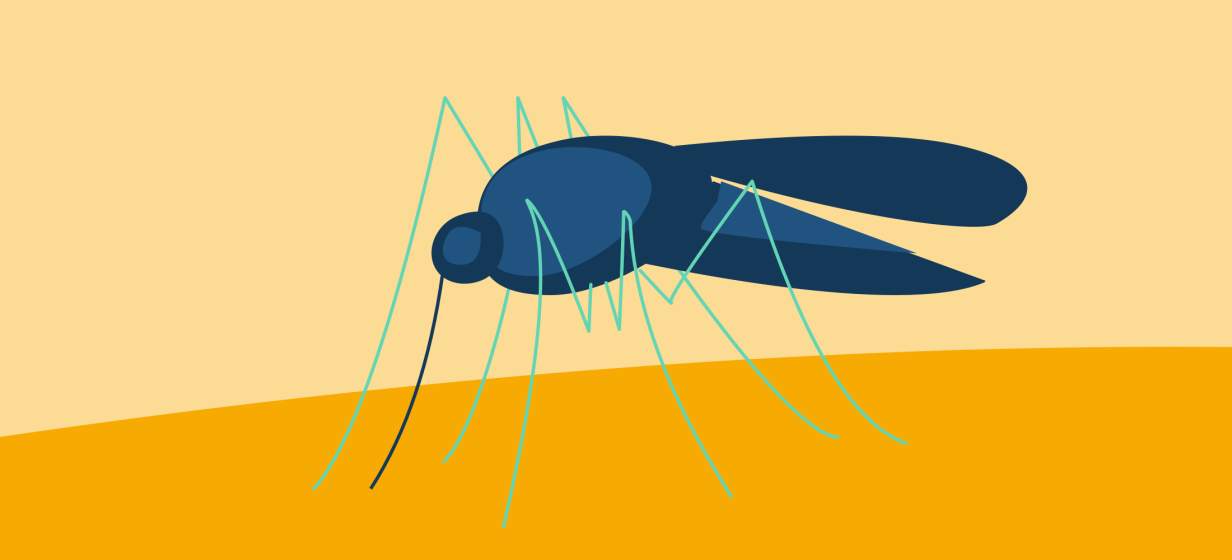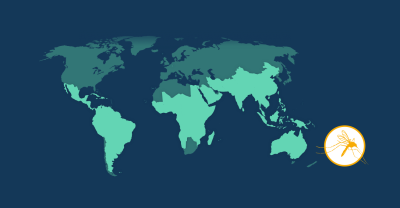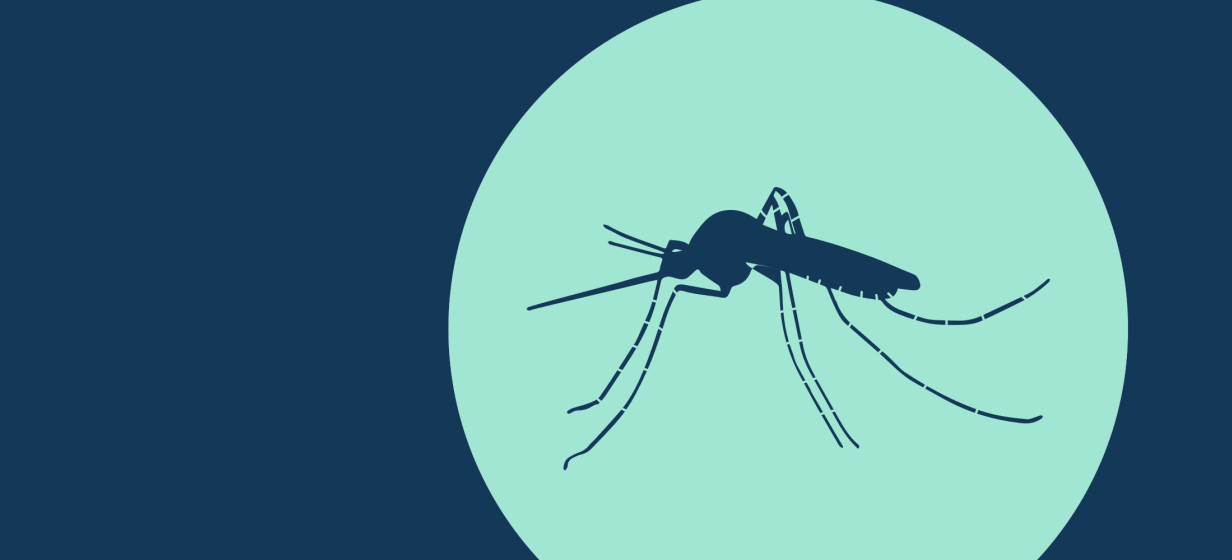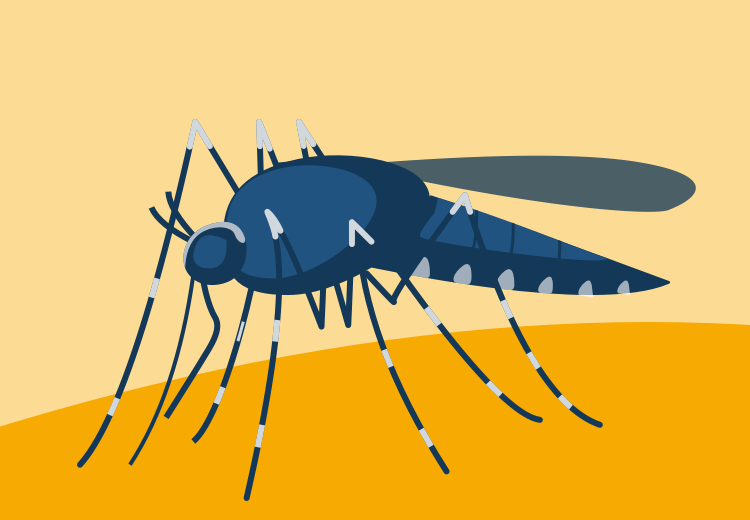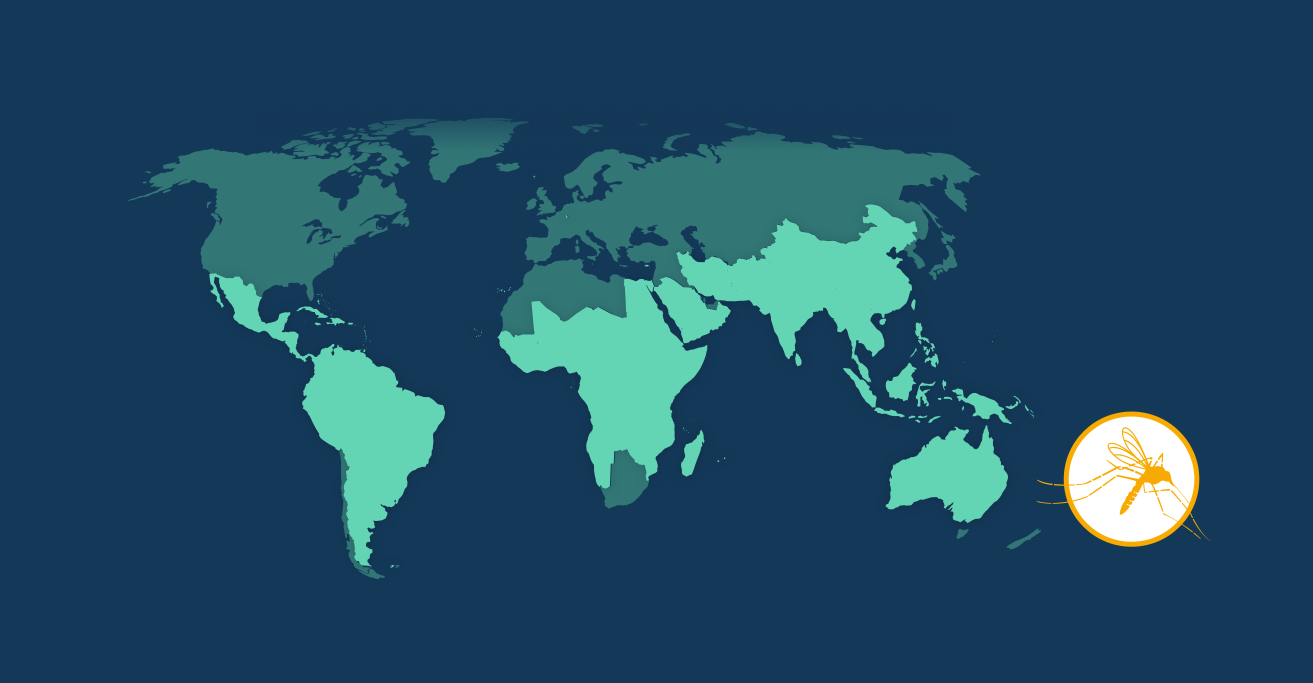How does the dengue virus enter our body?
Our skin is usually an effective barrier against viral infections.10 However, the dengue virus is able to bypass this defence with the help of certain mosquitos. When we are bitten by a mosquito carrying the dengue virus, the virus is injected straight into our blood stream.2,4 Once in our blood, the virus can then enter and infect nearby skin cells.3
What happens once we are infected?
The dengue virus looks for a special type of immune cell that resides in the skin, called a Langerhans cell.3,5 The job of Langerhans cells is to detect invading pathogens and warn the immune system about them.3 Once they have detected a pathogen, they display the warning sign on their surface like a flag. These flags are called antigens, and correspond to the type of pathogen that has been detected.3 The Langerhans cells then travel to the lymph nodes,5 which are like stations filled with immune cells that can help fight against infections.3
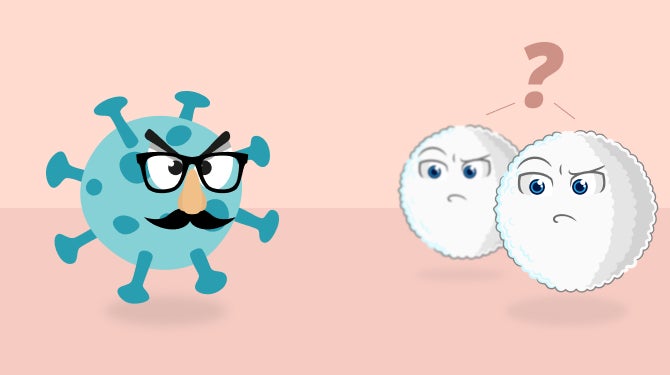
How does the dengue virus trick our immune system?
When the Langerhans cells reach the lymph nodes, two types of white blood cells, called monocytes and macrophages, are alerted.3 Normally, these cells ingest and destroy pathogens, but the dengue virus tricks the immune system to get around its defences. It is able to target and infect the monocytes and macrophages as well.3,5
Monocytes and macrophages are able travel throughout the body, using an immune highway called the lymphatic system. Because the dengue virus can infect and hide in these cells, it is able to spread throughout the entire body.3 During its journey, the dengue virus can infect more cells, including those in other lymph nodes, the bone marrow, spleen, liver and blood.3 The spread and increase of the virus can result in viraemia, a condition in which dengue viruses are detected in the bloodstream.3
How does the immune system combat a dengue infection?
Although the dengue virus can now spread throughout the body, the immune system still has the ability to fight and defeat the virus. The counterattack starts when our infected immune cells release small proteins, called interferons. These are so called because they interfere with virus’s ability to replicate. These interferons also step up our immune response, helping the immune system recognize infected cells and protect cells that haven’t yet been affected.3
The immune system then launches a three-pronged attack on the dengue virus:3
-
Immune cells (B cells) start to produce proteins that can specifically recognize and deactivate the dengue virus, called antibodies
-
Other immune cells (Killer T cells) kill and mop up cells that are infected with the dengue virus
-
A complex system called ‘complement’ helps the antibodies and immune cells remove the virus
How do we know if this is happening in our body?
It is during this stage of the immune response (around 4-10 days from the bite of an infected mosquito) that we can start to develop symptoms.2,6 Symptoms are experienced by around 1 in 4 people, and can include headache, pain behind the eyes, muscle and joint pains, nausea, vomiting, swollen glands and rash.2,7,8
From here, around 1 in 20 infections progress to a more serious disease state, called severe dengue.9 However, most people who are infected with dengue fully recover without any lasting issues.5,8
What happens to people who get severe dengue?
Some dengue infections can be much worse than others. Instead of recovering (within about a week)8, approximately 5% of people experience a sudden deterioration of symptoms 3-7 days after infection.2,5,9 The exact reason for this is not known,6 but is likely due to an abnormal immune response against the virus.1,5 Scientists believe this impaired immune response is not enough to clear the virus and actually causes more damage to our body.7 This damage can lead to serious consequences, such as fluid leaking out of our blood stream, respiratory distress, severe bleeding and organ impairment.1,2
Warning signs of progression to severe dengue include:2
-
Severe abdominal pain
-
Persistent vomiting
-
Rapid breathing
-
Bleeding gums or nose
-
Fatigue
-
Restlessness
-
Liver enlargement
-
Blood in vomit or stool
Severe dengue is a potentially fatal complication, so if individuals develop any of these symptoms, medical attention should be sought immediately.2 Timely medical care by physicians and nurses experienced with the effects and progression of the disease can save lives – decreasing mortality rates to less than 1% in the majority of countries.2
Please contact your healthcare professional if you are concerned about dengue symptoms or require advice on how to protect yourself and others against dengue infection.
Want to learn more about what happens to our bodies when we get severe dengue? Read the next article:

















